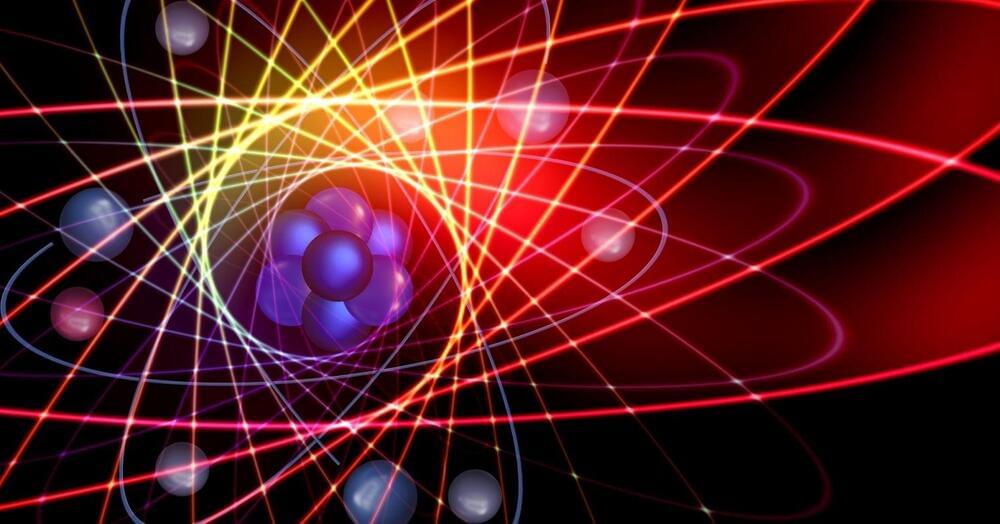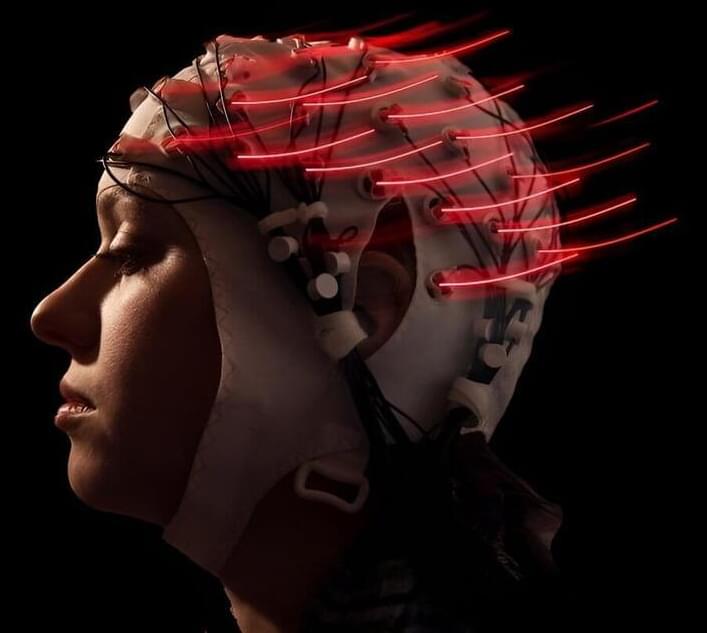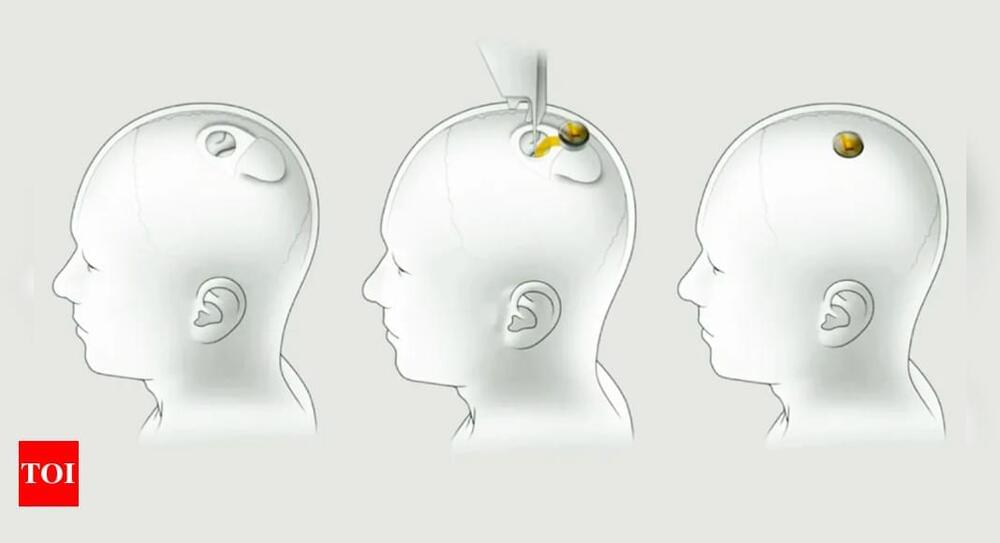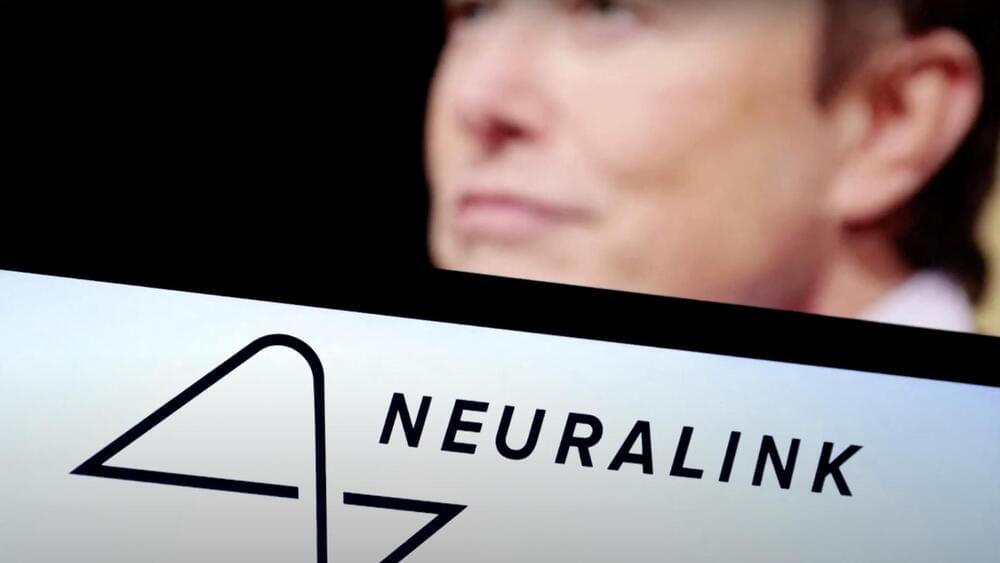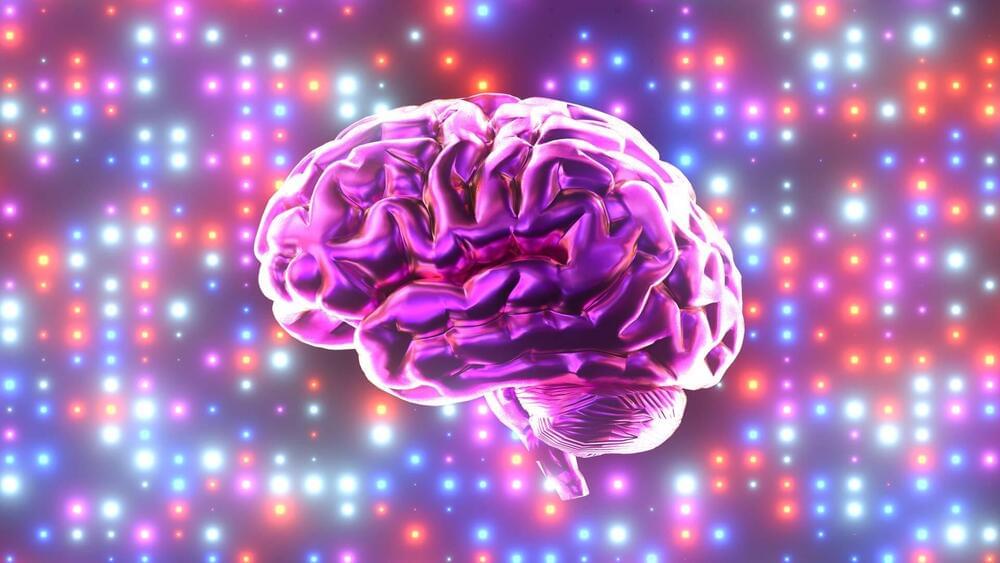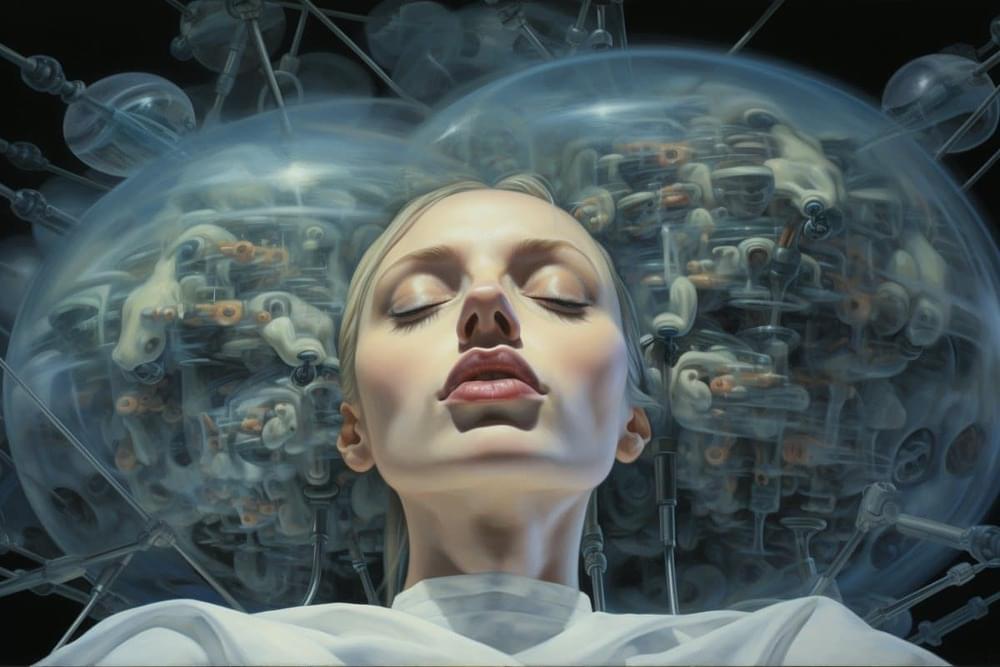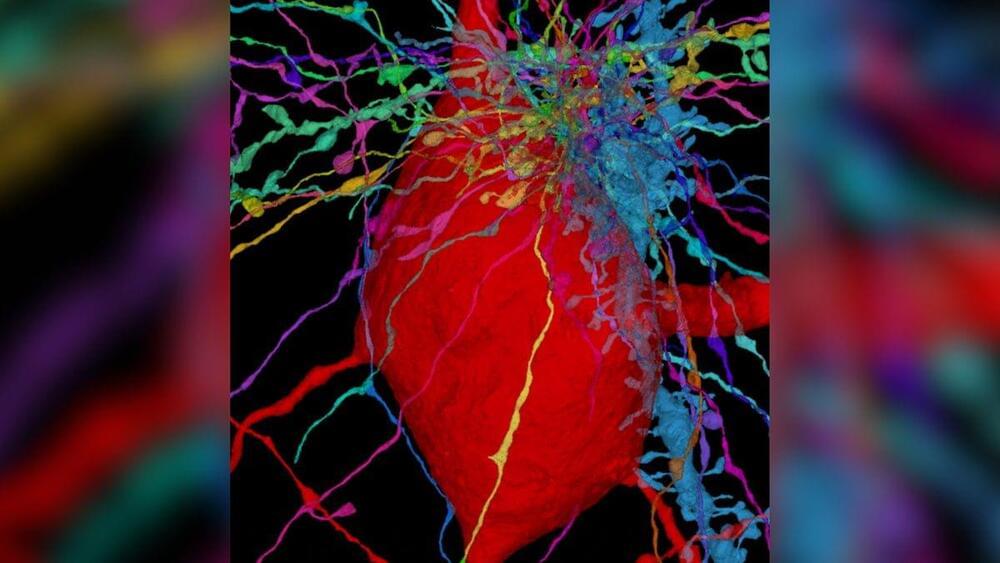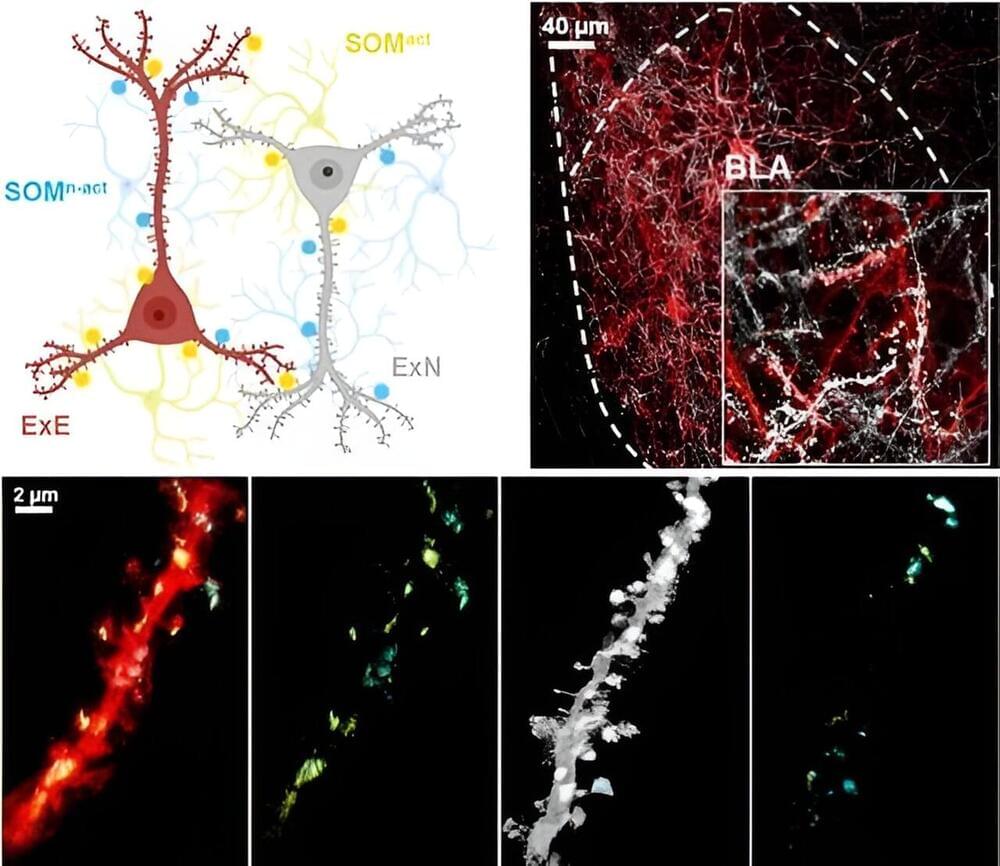Archive for the ‘neuroscience’ category: Page 224
Nov 9, 2023
Exploring how the human brain takes stock of blame
Posted by Saúl Morales Rodriguéz in category: neuroscience
The human mind does not like to make mistakes—and makes time to avoid repeating them. A new study from University of Iowa researchers shows how the human brain, in just one second, can distinguish between an outcome caused by human error and one in which the person is not directly to blame.
Moreover, the researchers found that in cases of human error, the brain takes additional time to catalog the error and inform the rest of the body about it to avoid repeating the mistake.
“The novel aspect about this study is the brain can very quickly distinguish whether an undesirable outcome is due to a (human) error, or due to something else,” says Jan Wessel, professor in the Department of Psychological and Brain Sciences at Iowa and the study’s corresponding author. “If the brain realizes an error was the cause, it will then start additional processes to avoid further errors, which it won’t do if the outcome wasn’t due to its own action.”
Nov 9, 2023
Thousands lined up to try out Elon Musk’s brain chip
Posted by Paul Battista in categories: biotech/medical, computing, Elon Musk, neuroscience
Elon Musk’s Neuralink is looking for a volunteer for its first clinical trial of a brain implant chip. The trial, which begins next year, has attracted thousands of prospective patients. The ideal candidate must be an adult under 40 with all four limbs paralyzed. The procedure involves inserting electrodes and wires into the brain, with a small computer replacing part of the skull. The computer will collect and analyze brain activity, sending the data wirelessly to a nearby device. Neuralink aims to translate thoughts into computer commands. However, the company has faced criticism for animal testing practices.
Nov 9, 2023
Neuralink: Thousands sign up for Elon Musk’s brain chip human trial
Posted by Gemechu Taye in categories: computing, Elon Musk, neuroscience
The FDA approved human trials after initially rejecting them in 2022, citing safety concerns.
The FDA had initially rejected the company’s request to run human trials back in 2022, citing safety concerns.
Nov 9, 2023
Brain implant turns thoughts into speech with up to 84% accuracy
Posted by Gemechu Taye in categories: biotech/medical, neuroscience
The hope is that people who are unable to speak because of neurological conditions may one day be able to communicate again thanks to this modern technology.
Helping people with motor disorders
“There are many patients who suffer from debilitating motor disorders, like ALS (amyotrophic lateral sclerosis) or locked-in syndrome, that can impair their ability to speak,” said Gregory Cogan, Ph.D., a professor of neurology at Duke University’s School of Medicine and one of the lead researchers involved in the project.
Continue reading “Brain implant turns thoughts into speech with up to 84% accuracy” »
Nov 9, 2023
How Anesthesia Blocks Consciousness
Posted by Jose Ruben Rodriguez Fuentes in category: neuroscience
Summary: A new study reveals insights into how general anesthesia affects consciousness and sensory perception.
Using animal models, researchers found that while propofol anesthesia allows sensory information to reach the brain, it disrupts the spread of signals across the cortex. This suggests that consciousness requires synchronized communication throughout the brain, and propofol’s effect of limiting this interconnectivity could explain its role in inducing unconsciousness.
Nov 9, 2023
3D map plots human brain-cell ‘antennae’ in exquisite detail
Posted by Jose Ruben Rodriguez Fuentes in categories: biotech/medical, neuroscience
A new map of 56,000 cells in the outer layer of the human brain could inform research into a whole class of diseases.
Nov 9, 2023
Thyrotoxicosis and Risk for Cognitive Disorders in Older Adults
Posted by Shubham Ghosh Roy in categories: biotech/medical, health, neuroscience
Thyrotoxicosis was associated with 39% higher risk for cognitive disorders.
Thyrotoxicosis, defined as a low level of serum thyroid-stimulating hormone (TSH), can result from either a primary thyroid disorder (endogenous) or overtreatment of hypothyroidism (exogenous). Evidence suggests that thyrotoxicosis is a risk factor for dementia. In this U.S. longitudinal cohort study, researchers used data from electronic health records for 66,000 people (median age, 68) without low TSH levels or cognitive disorders at baseline and evaluated whether development of thyrotoxicosis was associated with excess risk for cognitive disorders.
During the study period (2014 to 2023), 2,700 patients had low TSH levels (60% exogenous), and 4,800 patients received diagnoses of cognitive disorders. The incidence of cognitive disorders among patients with and without thyrotoxicosis were 11% and 6% at age 75, and 34% and 26% at age 85. Adjusted for multiple variables, all-cause thyrotoxicosis was associated with a significant 39% excess risk for cognitive disorders. Exogenous thyrotoxicosis — and in particular, severe exogenous thyrotoxicosis (TSH 0.1 mIU/L) — were associated most strongly with excess risk for cognitive disorders.
Nov 9, 2023
Study finds tracking brain waves could reduce post-op complications
Posted by Shubham Ghosh Roy in categories: biotech/medical, neuroscience
“You can see a very strong modulation, which is always there. As the modulation gets to be more profound, it eventually flattens out, and that’s when the brain reaches the deeper state,” Brown says.
When the amount of drug was reduced, the amplitude of the alpha waves began to increase again.
The researchers also found a distinctive pattern in the slow and delta waves seen in the patients’ EEG readings. Slow and delta oscillations are the slowest brain waves, and as the amount of drug was increased, the frequency of these waves became slower and slower, reflecting a decrease in brain activity.
Nov 9, 2023
Validating the role of inhibitory interneurons in memory
Posted by Shubham Ghosh Roy in category: neuroscience
Memory, a fundamental tool for our survival, is closely linked with how we encode, recall, and respond to external stimuli. Over the past decade, extensive research has focused on memory-encoding cells, known as engram cells, and their synaptic connections. Most of this research has centered on excitatory neurons and the neurotransmitter glutamate, emphasizing their interaction between specific brain regions.
To expand the understanding of memory, a research team led by KAANG Bong-Kiun (Seoul National University, Institute of Basic Science) developed a technology called LCD-eGRASP (local circuit dual-eGRASP) that can label synapses of neural circuits within a specific brain region. The team applied this new technology to identify the local synaptic connections between inhibitory interneurons and engram cells, shedding light on the role of inhibitory interneurons in memory expression.
The researchers targeted basolateral amygdala (BLA), an evolutionarily well-preserved brain region in vertebrates known for controlling positive and negative emotions in animals, especially fear. When a fear-related event occurs, neurons activated during that specific time point become engram cells, encoding the fear memory.
